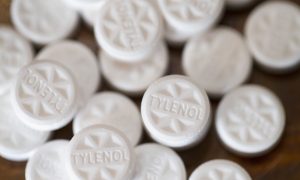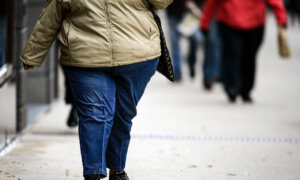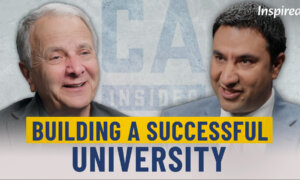Fasting has become popular for its numerous health benefits, such as improving gut health, delaying age-related diseases, and extending lifespan.
However, a recent study by the Massachusetts Institute of Technology (MIT) on mice showed both the benefits and risks of fasting: while fasting improved cell regeneration, eating after a fast may increase the risks of developing cancer, depending on what is consumed.
“In humans, it’s going to be a much more complex state,” Ömer Yilmaz, MIT associate professor of biology and senior author of the study, said in a press release.
Yilmaz added that further studies are needed before forming any conclusions as to whether fasting has a similar effect in humans. “We still have a lot to learn, but it is interesting that being in either the state of fasting or refeeding when exposed to mutagen (foods and agents that change the DNA) ... can have a profound impact on the likelihood of developing a cancer.”
Improved Regeneration After Fasting
The researchers’
prior study in 2018 discovered that a 24-hour fast causes intestinal stem cells to switch from using carbohydrates to lipids and fatty acids for energy. This shift boosts their ability to repair the gut lining more effectively.
The new MIT study builds on these findings by exploring what happens when people begin eating again after a period of fasting.
Immediately after food is introduced, the intestinal stem cells, which renew the intestinal lining every five to ten days, start to regenerate and proliferate.
The authors found that eating food after a period of fasting increases the healing ability of intestinal stem cells, enhancing their ability to maintain and repair the gut lining, which helps to protect against infections and aids digestion.
Researchers studied three groups of mice: one that fasted for 24 hours, another that fasted and then refed for 24 hours, and a control group that ate continuously. The stem cells in the mice who ate after fasting showed the most active stem cell growth, surpassing those in the continuously fed and fasting-only group.
“We think that fasting and refeeding represent two distinct states,” Shinya Imada, a lead researcher, said in a press release. He added that when fasting, cells rely on fats for energy since nutrients are limited. When mice start eating again, stem cells and their early forms begin to grow and repair the intestinal lining.
The Risks When Breaking a Fast
While eating food after a period of fast boosts stem cell growth, this period is also linked with risks.
When people start to eat after a fast, their stem cells start regenerating and proliferating, which, while beneficial for healing, also creates conditions conducive to cancerous growth if carcinogens are present.
The research found that mice that are exposed to cancer-causing agents after a fast were more likely to develop precancerous polyps compared to those with similar mutations during fasting.
“Having more stem cell activity is good for regeneration, but too much of a good thing over time can have less favorable consequences,” said Yilmaz.
“Previous studies have shown that fasting interventions ... mostly inhibit tumor growth,” the study’s authors wrote. “However, these studies mainly focused on the fasted state; they did not delineate the contributions of the refed states on tumour initiation.”
The researchers focused on the mTOR pathway, which controls cell growth. During fasting, stem cells use fats for energy. After eating again, the mTOR pathway gets activated, which boosts protein production and cell growth. This intense repair process is linked to the production of polyamines—small molecules that support cell growth. While essential for repair, polyamines also create an environment where cancerous cells can thrive.
Impact on Human Health
Author of “The Obesity Code” Dr. Jason Fung told The Epoch Times that applying the study’s conclusion to humans is a stretch without empirical data. The study findings are based on mouse models, which limit the direct application to human health.
Still, the study suggests the importance of cautious eating practices when breaking a fast, particularly avoiding potentially cancer-causing foods.
Dr. Stephen Freedland, director of the Center for Integrated Research in Cancer and Lifestyle at Cedars-Sinai, told The Epoch Times in an email that while the study is well-designed, he agrees that translating these results from mice to humans is difficult.
“Mice have a very active metabolism,” he said. “A 24-hour fast in a mouse is like a multi-day fast for humans.” It’s difficult to directly apply these findings to people. He also pointed out that the mice were allowed unlimited food when eating again, which might not reflect how people typically break their fasts.
Harvard professor Dr. Ramesh Shivdasani, who is also the deputy director of the Dana-Farber/Harvard Cancer Center and contributed to the study, stated that the findings aren’t adequate for recommending specific foods for people to eat when coming off of a fast.
“Although the study’s findings in mice are provocative and unexpected, they are not yet sufficient to prescribe specific post-fasting behaviors for humans,” he said in an email to The Epoch Times.
Looking Ahead
Future studies will be essential to fully understand the impact of fasting and then breaking the fast on human health. Researchers need to investigate how factors like how long one fasts, how people eat after fasting, and overall diet influence stem cell health and cancer risks, according to the study.
Yilmaz’s team is now investigating whether polyamine supplements could stimulate regeneration without fasting. This could offer a way to harness the benefits of stem cell activation while avoiding the potential risks associated with eating right after a fast.














